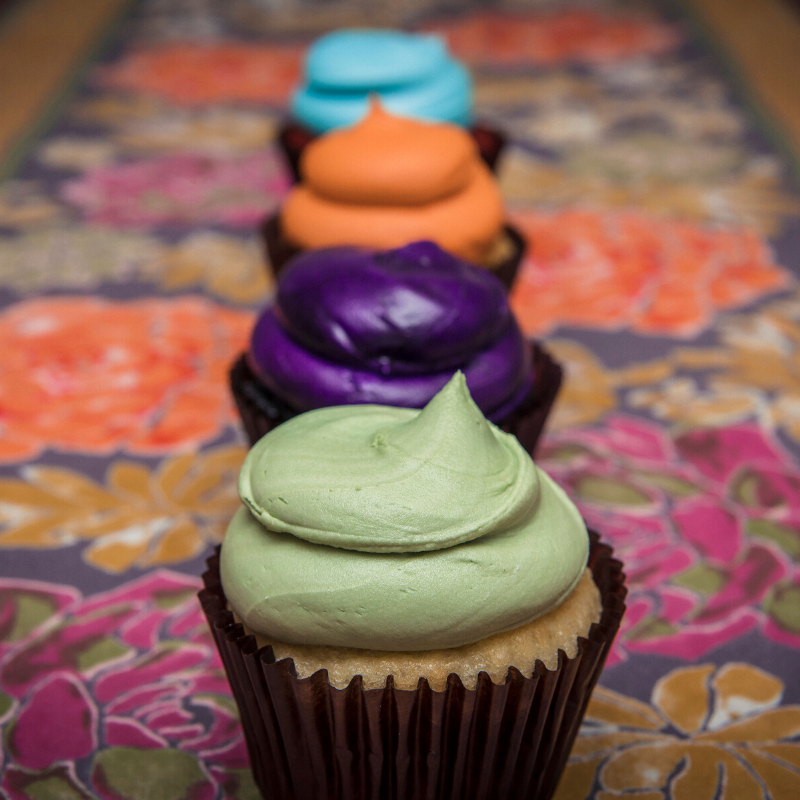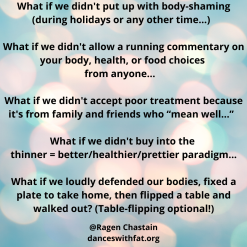This past month, the Nutritious Thoughts team participated in Laughter Yoga. Yep, you read that correctly! Never having heard of this form of self-care, we were greatly intrigued and wanted to learn more about the potential benefits of this practice. Happiness Coach Jennifer Parr (make sure to check out her services here!) gave us an incredible introduction to Laughter Yoga and how giggling can promote overall well-being!
Laughter Life Hack – written by Jennifer Parr
Laughing for just 15 minutes can literally save your life. 1 in 2 Americans struggle to stay happy and the majority of us are seeking solutions to escape the overwhelming stress so many of us face on a daily basis that can be felt in the form of anxiety, irritability, fatigue, digestive problems, and headaches.
One of the fastest and most immediate ways to reduce stress and rewire neural pathways in the brain to get immediate and noticeable change is laughter. Laughter is now recognized as a legitimate, scientifically validated form of preventative medicine.
Physiologically, stress and laughter are complete opposites. If you are laughing, it is physically impossible to also experience stress in that moment. When you experience stress, it negatively effects the functioning and health of your body including an increased heartbeat, rise in blood pressure, and constriction of blood vessels. However, when laughing, your heartbeat slows, blood pressure naturally decreases, and blood vessels are no longer constricted.
The health benefits of laughter are endless.
Laughter Benefits:
Decreases Stress Hormones.
Counteracts Symptoms of Depression.
Relaxes Muscles, and Simulates Circulation.
Improves Memory, Creativity and Problem Solving Skills.
Increases Energy Levels.
Strengthens Immune System.
Improves Digestive System.
Elevates Self Esteem.
Reduce or Prevent Symptoms of Allergies, Asthma, Arthritis, and Cancer.
Quiets the Mind.
Better Sleep.
Release of Feel Good Endorphins.
Emotional Balance and Joy.
Improves Overall Health.l
How can you get MORE laughter in your life? You are 30 times more likely to laugh in the company of others (vs. laughing on your own). One of the most fun and effective ways to guarantee regular laughter while in the company of a supportive community is to take a Laughter Yoga class. It is necessary to laugh for at least 15 minutes to receive the full health benefits of laughter. Laughter Yoga will guarantee that you get at least 15 minutes of Laughter (and in most cases much more) so you can experience immediate and noticeable health benefits.
WHAT IS LAUGHTER YOGA?
Laughter yoga combines yogic breathing techniques, guided laughter exercises and a unique form of meditation. No mat or yoga experience is needed or required.
Class Includes:
· Light Stretching
· Yogic Breathing Techniques.
· Laughter Exercises and Movement.
· Low impact cardiovascular workout for any fitness level.
· Laughter Meditation.
What To Expect In A Laughter Yoga Session?
Play and joy are basic human needs, even for adults, and necessary for living a happy and balanced life. This class supports participants in meeting such essential needs and can bring lasting joy when practiced regularly through a variety of guided group and partner exercises. Learn how to laugh without having to rely on humor, jokes or comedy!
What Will You Experience After Laughter Yoga?
Immediately following a laughter yoga session, you will understand the value of laughter as a form of low impact cardiovascular exercise. Many participants have reported decreased anxiety, stress, tension, and worry immediately after the first class as well as increased energy and relaxation.
You will learn how to change your mood within minutes through the exercises. Practicing regularly will help create a more positive attitude and positive coping mechanisms for difficult life situations. Participants will also learn techniques for releasing built up negative emotions. Many participants also report that they feel more connected and comfortable with other participants in class and it can often help in forming friendships.
If you are interested in experiencing a Laughter Yoga class, we will be offering regular classes at Nutritious Thoughts led by Jennifer Parr. Her website is www.jennparr.com.
“Always laugh when you can, it is cheap medicine.” – Lord Byron







 Chelsea Fielder-Jenks is a Licensed Professional Counselor in private practice in Austin, Texas. Chelsea works with individuals, families, and groups primarily from a Cognitive Behavioral Therapy (CBT) and Dialectical Behavior Therapy (DBT) framework.
Chelsea Fielder-Jenks is a Licensed Professional Counselor in private practice in Austin, Texas. Chelsea works with individuals, families, and groups primarily from a Cognitive Behavioral Therapy (CBT) and Dialectical Behavior Therapy (DBT) framework.